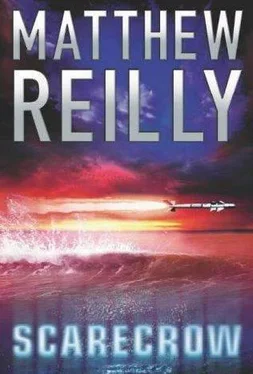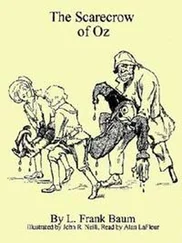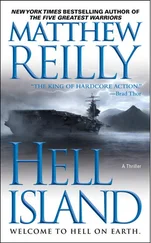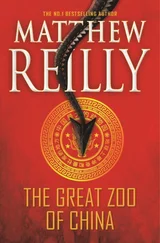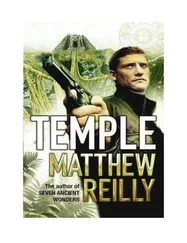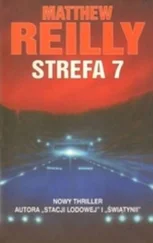
MATTHEW REILLY
For Natalie, again
ACKNOWLEDGEMENTS
I don't know about you, but when I read a book, usually most of the names on the 'Acknowledgements' page mean very little to me. They're either friends of the author, or people who helped the author with research or getting published.
But let me tell you, profound and public thanks is exactly what these people deserve.
In my previous books, I have written on the 'Acknowledgements' page these words: 'to anyone who knows a writer, never underestimate the power of your encouragement.'
Believe me, writers—indeed, all creative people—live off encouragement. It drives us, propels us onward. One encouraging word can outshine a thousand critical comments.
And so while you, dear reader, may not recognise all of the following names, each in their own way encouraged me. This book is the richer for their help.
So.
On the friendship side:
Thanks, again, to Natalie Freer for her companionship and her smile and for reading the book in 60-page chunks once again; to John Schrooten, my mum and my brother, Stephen, for telling me what they really thought. And to my dad for his quiet support.
To Nik and Simon Kozlina for taking me out for coffee when I needed it and to Bee Wilson for those dinners every Wednesday night. And to Daryl and Karen Kay, and Don and Irene Kay, for being keen test subjects, hard-nosed engineers and good friends.
On the technical side:
Special thanks to the remarkable Richard Walsh from BHP Billiton for taking me on a fantastic tour of a coalmine down at Appen—the mine scenes in this book are so much more authentic for that experience! And thanks to Don Kay for arranging the introduction.
And of course, once again, sincere thanks to my amazing American military advisors, Captain Paul Woods, US Army, and
Gunnery Sergeant Kris Hankison, USMC (retired). It's incredible what these two guys know—as such, any mistakes in the book are mine and were made over their objections!
And again, to everyone at Pan Macmillan, thank you for another great effort. They're a wonderful crew at Pan Macmillan: from editorial to publicity to the sales reps out on the road.
To anyone who knows a writer, never underestimate the power of your encouragement.
M.R.
TURNING AND TURNING IN THE WIDENING GYRE,
THE FALCON CANNOT HEAR THE FALCONER; THINGS FALL APART; THE CENTRE CANNOT HOLD; MERE ANARCHY IS LOOSED UPON THE WORLD . . .
W. B. YEATS The Second Coming
ALL OF THE BRAVE MEN ARE DEAD.
RUSSIAN MILITARY PROVERB
PROLOGUE
THE RULERS OF THE WORLD
LONDON, ENGLAND
20 OCTOBER, 1900 HOURS
There were 12 of them in total.
All men.
All billionaires.
Ten of the 12 were over 60 years of age. The other two were in their thirties, but they were the sons of former members, so their loyalty was assured. While membership of the Council was not strictly conditional on heredity, over the years it had become commonplace for sons to replace their fathers.
Otherwise membership was by invitation only and invitations were rarely given—as one would expect of such an august collection of individuals.
The co-founder of the world's largest software company.
A Saudi oil magnate.
The patriarch of a Swiss banking family.
The owner of the world's biggest shipping company.
The world's most successful stock trader.
The Vice-Chairman of the US Federal Reserve.
The newly-inherited heir to a military construction empire that built missiles for the United States Government.
There were no media barons on the Council—since it was widely known that their fortunes were largely based on debt and fluctuating
share prices. The Council controlled the media simply by controlling the banks that fed the media barons their money.
Likewise, there were no national leaders—as the Council well knew, politicians possess the lowest form of power: transient power. Like media barons, they are beholden to others for their influence. In any case, the Council had made and unmade presidents and dictators before.
And no women.
It was the Council's view that there was—as yet—no woman on the planet worthy of a seat at the table. Not the Queen. Not even the French make-up heiress, Lillian Mattencourt, with her $26 billion personal fortune.
Since 1918, the Council had met twice a year, every year.
This year, however, it had been convened nine times.
This was, after all, a special year.
While the Council was a somewhat secretive group, its meetings were never held in secret. Secret meetings of powerful people create attention. No. It had always been the Council's opinion that the best-kept secrets existed out in the open, witnessed by the world but never actually seen.
As such, Council meetings were usually held during major international gatherings—the annual World Economic Forum in Davos, Switzerland; various World Trade Organisation meetings; the Council had even met once at Camp David, when the President wasn't there.
Today it met in the grand executive boardroom of the Dorchester Hotel in London.
The vote was taken and the decision was unanimous.
'Then it is agreed,' the Chairman said. 'The hunt will commence tomorrow. The list of targets will be released tonight through the usual channels, and bounties will be paid to those contractors who present to Monsieur J. P. Delacroix of AGM-Suisse the accustomed form of proof that a particular target has been eliminated.
'There are fifteen targets in total. The bounty for each has been set at US$18.6 million.'
An hour later, the meeting ended, and the members of the Council adjourned for drinks.
On the boardroom table behind them lay their meeting notes. Of the notes sitting in front of the Chairman's seat, one page lay face-up.
On it was a list of names.
It was, to put it mildly, a singularly impressive list.
It featured members of the world's elite military units—the British SAS, the US Army's Delta Detachment and the Marine Corps.
The Israeli Air Force made an appearance, as did intelligence agencies like the Mossad and the ISS—the Intelligence and Security Service, the new name for the CIA. Plus members of the terrorist organisations HAMAS and Al-Qaeda.
It was a list of men—special men, brilliant at their chosen deadly professions—who had to be removed from the face of the earth by 12 noon, October 26, US Eastern Standard Time.
FIRST ATTACK
SIBERIA
26 OCTOBER 0900 HOURS (LOCAL TIME)
E.S.T. (NEW YORK, USA) 2100 HOURS (25 OCT)
Modern international bounty hunters bear many similarities to their forebears in the Old American West.
There are the lone wolf bounty hunters —usually ex-military types, freelance assassins or fugitives from justice themselves, they are lone operators known for their idiosyncratic weapons, vehicles or methods.
There are the organisations —companies that make the hunting of fugitive human beings a business. With their quasi-military infrastructures, mercenary organisations are often drawn to participate in international human hunts.
And, of course, there are the opportunists— special forces units that go AWOL and undertake bounty hunting activities; or law enforcement officials who find the lure of a private bounty more enticing than their legal obligations.
Читать дальше
